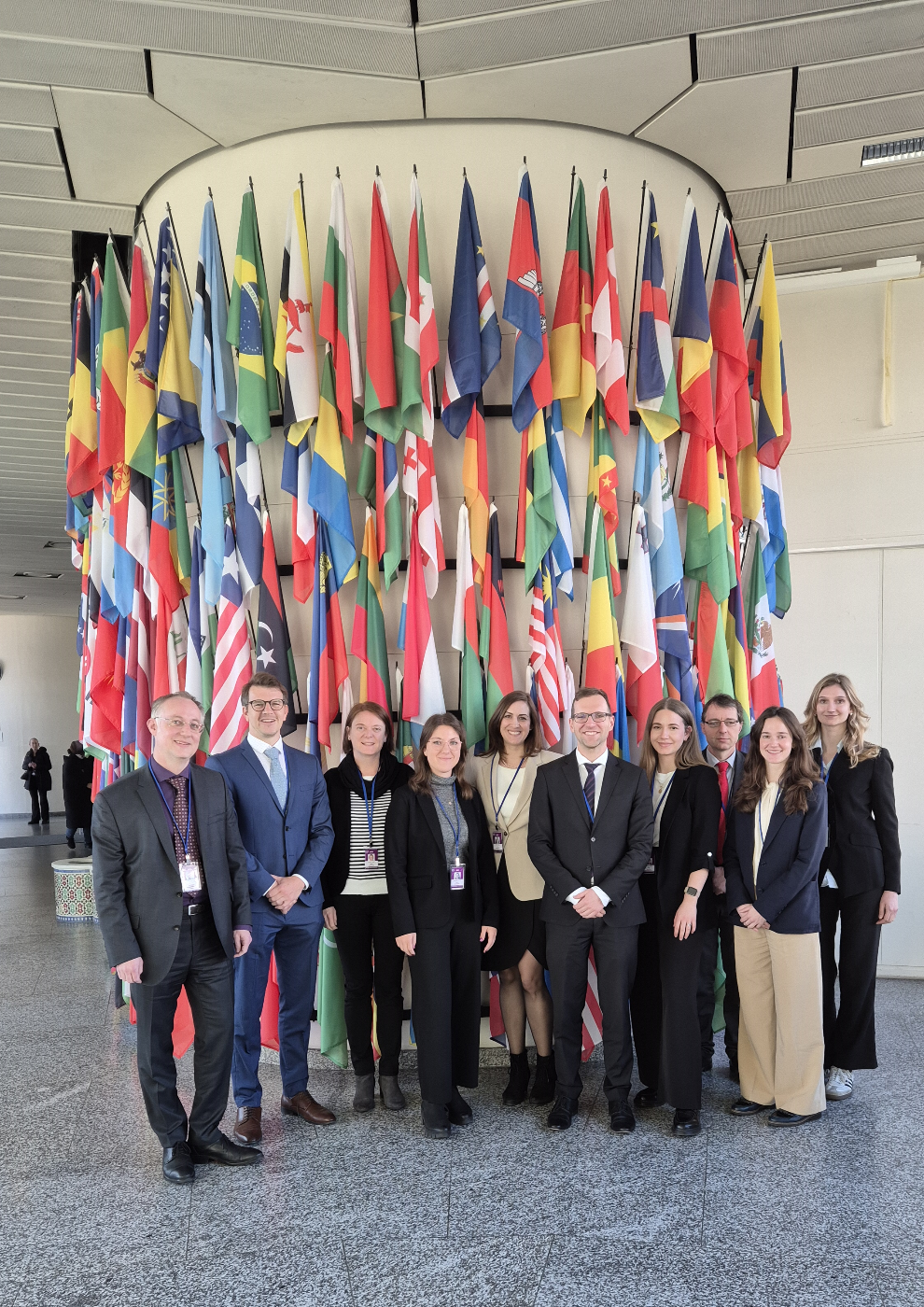Joint Convention on the Safety of Spent Fuel Management / Safety of Radioactive Waste Management
.png)
The "Joint Convention" is intended to ensure high safety standards worldwide for facilities for the disposal of spent fuel elements and radioactive waste.
The "Joint Convention on the Safety of Spent Fuel Management and on the Safety of Radioactive Waste Management" is a convention under international law that was adopted in 1997. In the meantime, 88 member countries of the International Atomic Energy Agency (IAEA) have signed the agreement, including Austria.
The objective of the "Joint Convention" is to reach high safety standards worldwide for facilities for the disposal of spent fuel elements and radioactive waste. Precautions against possible dangers with radiological consequences should be created and maintained in the long term.
By signing the Convention, the signatory states undertake to draw up a "National Report" every three years. This National Report describes the current status regarding the disposal of spent fuel and radioactive waste. This includes the legal basis of the respective countries, the inventory of spent fuel elements and radioactive waste, safety measures for storage and disposal. The respective National Reports are presented and discussed within the framework of a review conference.
The review conferences are held at the headquarters of the Secretariat of the Joint Convention, the International Atomic Energy Agency, in Vienna. The seventh review conference took place from 27 June to 8 July 2022. The Eighth Review Conference took place from 17 to 28 March 2025 .
The Joint Agreement and the latest Austrian national report are available for download:
Tip
Further details on the Joint Convention in English (IAEA)
8th Review Meeting of the Parties
Delegations from 77 Parties to the Joint Convention met from March 17 to 28, 2025, for the eighth Review Meeting at the headquarters of the International Atomic Energy Agency (IAEA) in Vienna. The Austrian delegation consisted of representatives from the Federal Ministry for European and International Affairs and the Federal Ministry for Energy, Nuclear, and Water Management (BMZ, until March 31, 2025). Similar to the seven previous Review Meetings, a national report was prepared for the 8th Review Meeting, questions from other Parties were answered, and a presentation was given during the Review Meeting.
Peer Review: Good Report Card for Austria
During the review meeting, country presentations were held in small groups of approximately ten to fifteen countries. Austria gave its national presentation in such a group, including Germany and Russia, and answered questions from these and other countries. Following the presentation and a detailed discussion, the conclusions for Austria were summarized as follows:
- A successful review with active participation from the country group members and others present in the room.
- Three areas of good performance were identified:
- Progress in minimizing radioactive waste for disposal
- Treatment of contaminated materials using the earth measurement system
- Sufficient provision of resources to advance the radioactive waste management process
- Austria demonstrated commitment and willingness to cooperate.
- Radioactive waste management at Nuclear Engineering Seibersdorf (NES) is state-of-the-art, while progress has been made toward final disposal.
- The Waste Management Advisory Board plays a central role in implementing waste management solutions.
To further improve the situation, Austria plans, among other things, to continue the Waste Management Advisory Board, maintain the technology of the waste management facilities in Seibersdorf, and conduct international review missions by independent experts.
One of the challenges identified was the continued implementation of the National Waste Management Program, including the decision on a planned final repository.
